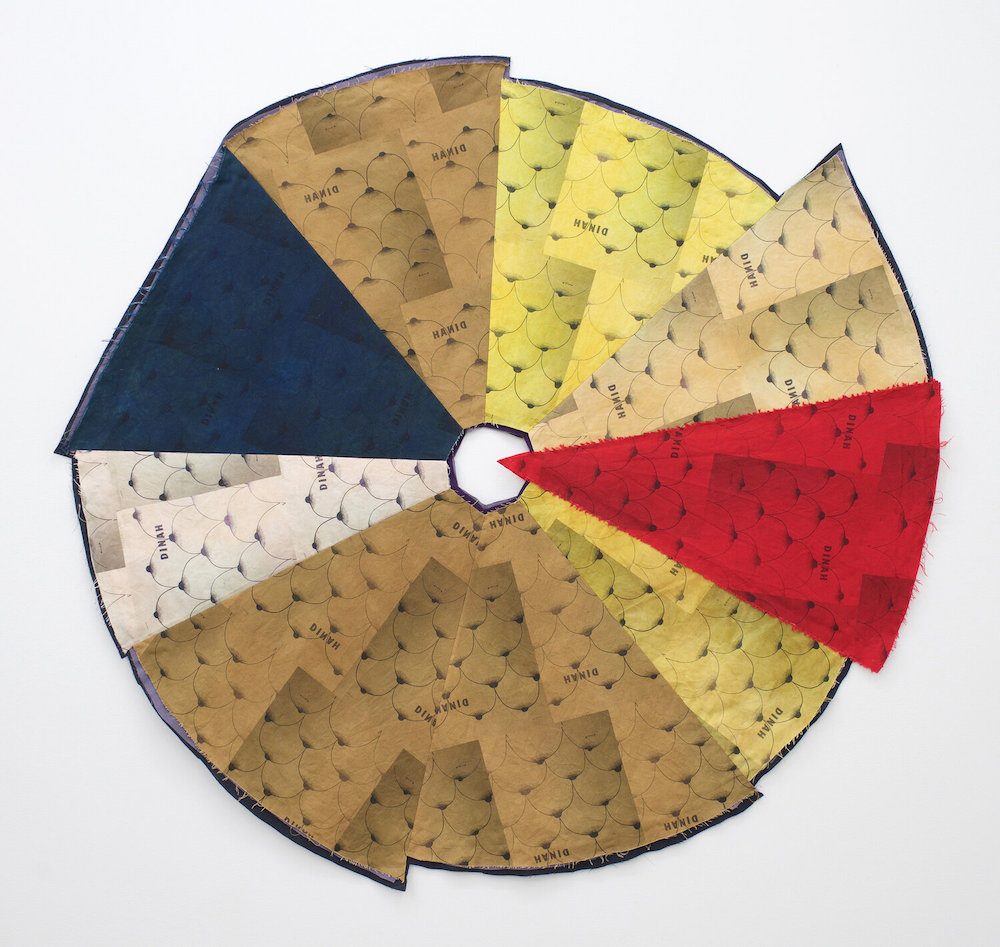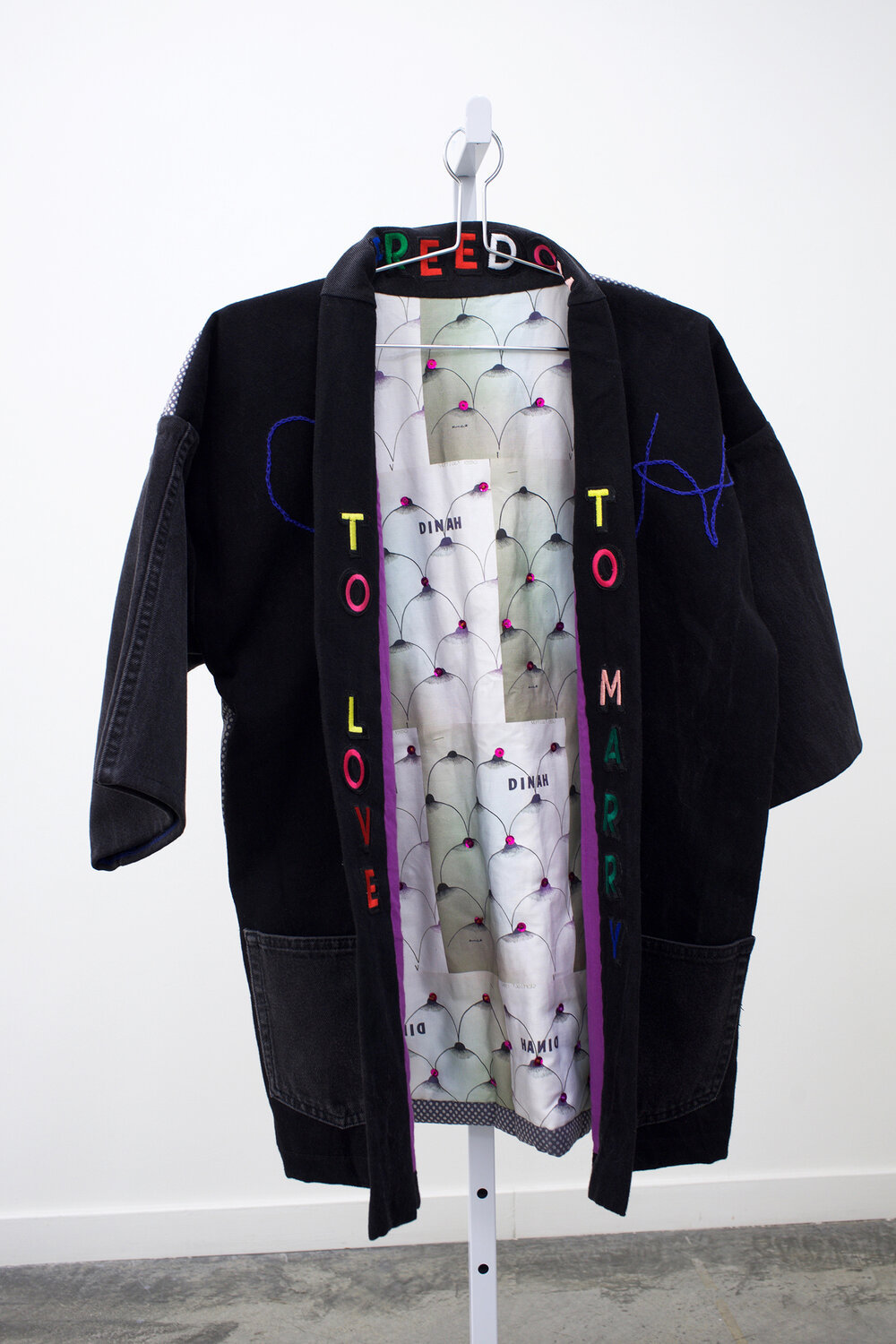In Amanda Curreri’s “Terra Tools: Blocks, Clocks, Rocks & Blades” (through July 17 at Romer Young), the artist presents a series of quilted works and two jackets. While living in Cincinnati—she was formerly based in the Bay Area, now in Albuquerque—Curreri culled through the Ohio Lesbian Archives, where she was introduced to “Dinah,” a local lesbian newsletter (1975–97). With many works featuring fabric printed with illustrations from “Dinah,” Curreri fuses elements from lesbian histories that speak to the resourcefulness of craft and her community.
Constituting most of the exhibition, Curreri’s wall-hung quilted works explore clocks and clock-like forms. The work “Free → Time” (2021) grounds the series with a photographic image of a clock printed on fabric. Sliced into triangles and restitched together, Curreri suggests a rapidly moving, non-linear time. As a companion piece, in “Clock” (2021) Curreri moves more abstractly to a clock-like form. With breasts from “Dinah” printed on yellow, beige, red, and indigo pie-shaped wedges, Curreri suggests a range of flesh tones, connected and rotating through time.

As Curreri’s quilts invoke time, “O.H. Coat” (2019) pays tribute to milestone LGBTQ+ legislation. In a simple jacket constructed of recycled denim, “O” and “H” are simply embroidered on the left and right chest. The letters stand for the state of Ohio—where she was living at the time—and the Supreme Court case Obergefell vs. Hodges, which lead to the 2015 Marriage Equality Act. The artist creates a poignant parallel between clothing and laws, where both protect bodies and have an exteriority or public face.
Careful inspection reveals that Curreri has stitched “FREEDOM” along the back of the neck-line, while “TO LOVE” and “TO MARRY” flank the left and right sides of the jacket’s opening. As the texts runs along the seams, they sit at the edge of being visible to viewers and also suggesting the privacy of the individual. Moreover, as the breast pattern from “Dinah” lines the jacket, Curreri alludes to the intimacy of the body and life partners. In this beautifully touching work, Curreri positions love, relationships, and bodies in the jacket’s lining, as values and people we hold close.

Additionally, in “Wild Patience Pocket Poncho” (2019), Curreri presents a poncho assembled from recycled denim. As comfortable outdoor apparel, Curreri’s poncho is outfitted with many additional pockets placed in unconventional places. While pockets are typically are positioned on the chest, buttocks, waist, and hips, Curreri queers normative apparel design for bodies and individuals who may have different needs or desires.
Curreri’s pockets also suggests places to hold the many tools that one might need for a journey, a more gender neutral replacement for a purse. Most poetically, the poncho offers a myriad of places for one’s hands when cold, awkward, or tired. As artists and activists make objects and community, laboring hands need a place to rest and feel comfort.
Curreri’s work possesses a resourcefulness, of materials and spirit, where resilience is making what one needs, be they laws, communities, or clothes. Beautifully, Curreri’s stitching suggests the piecing together of history and community, where activism fuses with a stewardship for the values and people that one holds close.
“Amanda Curreri: Terra Tools: Blocks, Clocks, Rocks & Blades” runs through July 17 at Romer Young Gallery, SF. More info here.






